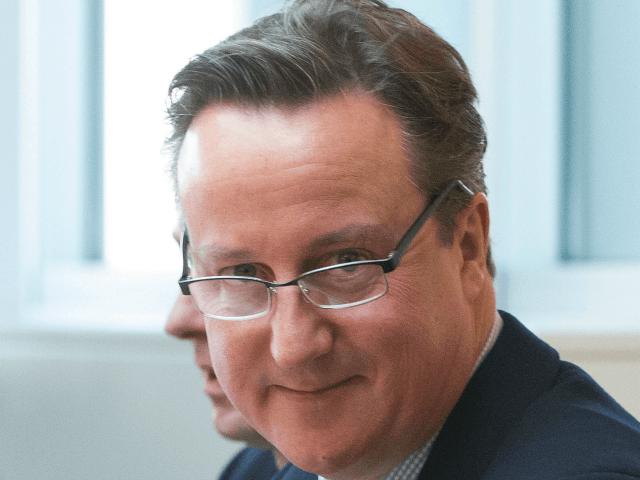BRUSSELS (Reuters) – David Cameron fended off changes on Tuesday to a draft deal he has cut to help keep Britain in the EU, as the European parliament said it could not guarantee to pass the reforms.
Fresh from talks in Paris the night before, where President Francois Hollande pressed French demands for changes in a text it fears will give British banks an unfair advantage, the British prime minister met EU executive chief Jean-Claude Juncker and leaders of the EU legislature.
Two days before a summit where all sides hope to seal an agreement, Cameron made no public comments during his stay in Brussels and one person present at one of the meetings said he seemed very stressed.
But Manfred Weber, the centre-right leader in the parliament and an ally of German Chancellor Angela Merkel, said Cameron appeared “strongly convinced that he can convince the people” to back continued EU membership in a referendum expected to take place in June.
Speaking in Prague summit chairman Donald Tusk, who presented the draft proposal two weeks ago, said EU leaders would need to walk “an extra mile” to reach an agreement.
Whatever national leaders concluded, the legislature’s German president said he could not guarantee European deputies would deliver the necessary legislation, notably on welfare benefits.
“This is not possible in a democracy,” Martin Schulz said after meeting Cameron.
But he also pointed out that parliament had “no veto” over the accord, and he, Weber and other leaders of major parties said they would legislate within the “framework” of the deal.
“MONKEYS WITH GUNS”
Britain wants to be excused from closer political integration and seeks guarantees its banks will not be discriminated against by the euro zone and a brake on immigration from the EU.
But parliamentary leaders voiced concern that cutting special deals for London could encourage others to seek favours.
“It’s Pandora’s box,” one parliamentary official said of the prospect of the 750-seat legislature getting to grips after the British referendum with redrafting laws to benefit London. “The parliament is unpredictable. It can be monkeys with guns.”
Among national governments, EU officials hope a final deal can be hammered out during the two-day summit, with talks going through the night if necessary.
Issues still to be settled include concerns, especially in France, that guarantees that the sterling-based City of London does not suffer from deals cut by the 19-nation euro zone may allow British banks a chance to benefit from lighter local regulatory constraints.
Sources close to the negotiations say British diplomats and officials have been defending Tusk’s draft against efforts by others to chip away at Britain’s perceived gains.
Eastern Europeans, whose citizens are most likely to be hit by a new “emergency brake” to discriminate against foreign EU workers in giving social benefits, are pushing to limit how long Britain might exercise that right.
And they and others are pressing to ensure as much as possible of the new deal is restricted only to Britain, so other countries do not follow its lead.
The summit will also focus on the migration crisis facing Europe and stemming in part from the war in Syria, where Western states find themselves confronted by Islamist militants, regional powers in the Middle East and an uncooperative Russia.
Guy Verhofstadt, the liberal party leader in the European Parliament, said the EU should work with Cameron to counter eurosceptics like UK Independence Party leader Nigel Farage and Russian President Vladimir Putin.
“The only winners from a Brexit would be Nigel Farage and Vladimir Putin, who would relish a divided Europe,” he said.
(By Alastair Macdonald; additional reporting by Robert-Jan Bartunek and Philip Blenkinsop in Brussels and Paul Taylor in Paris; editing by John Stonestreet)

COMMENTS
Please let us know if you're having issues with commenting.